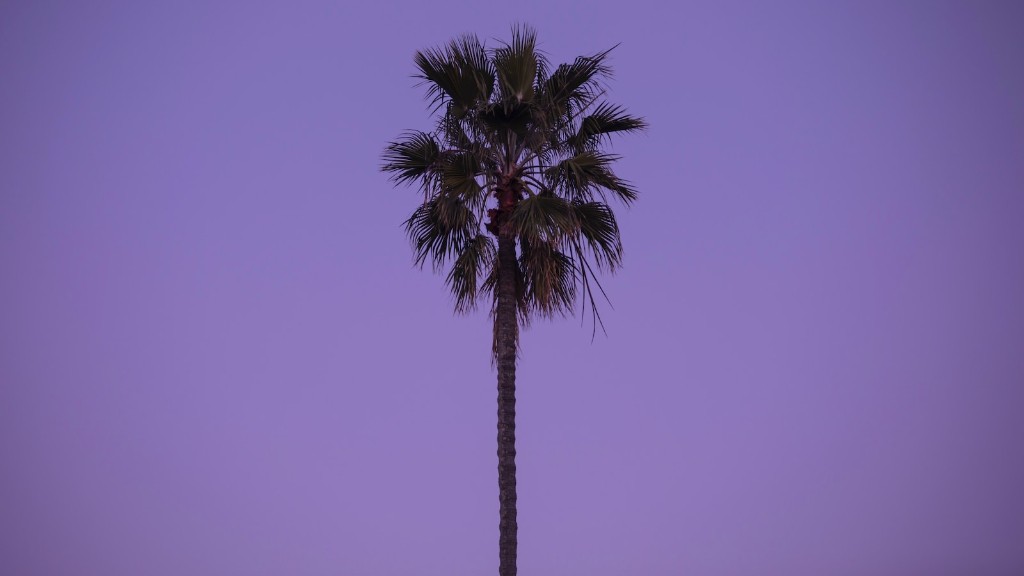The best lemon tree is one that has been carefully selected based on factors like climate, soil quality, and the type of lemon it produces. Lemon trees are a valuable addition to any garden, providing a generous crop of lemons each year. But how to find the perfect lemon tree for your yard? It’s important to consider a few key factors before making a purchase.
First, consider the climate of your location. Lemon trees require temperate climates with plenty of sunshine and moderate temperatures. If you don’t live in a warm climate, you’ll want to look for a variety that’s more resistant to cold weather. Also think about the amount of direct sun your yard receives. Lemon trees require direct sunlight to produce a bountiful harvest.
Next, think about the type of lemon you want. Different varieties differ in size, flavor, and ripening times. If you’re looking for a sweet lemon, consider varieties like Lisbon or Eureka. For a tart lemon, seek out varieties like Femminello or Villafranca. Be sure to read descriptions of the different varieties to find out which one is best for you.
The quality of your soil is also essential when choosing a lemon tree. Lemon trees need well-draining soil, so if you have heavy clay soils, you may need to amend the ground with some compost or sand. Also make sure the pH of the soil is between 6.0 and 7.5 for optimal growth. If you’re not sure of the pH of your soil, you can take a soil sample to your local extension office for testing.
You also need to decide how you want to buy your lemon tree. If you’re looking for a mature tree, you may be able to find a nursery in your area that sells fruit trees. Others may choose to purchase a sapling from an online nursery. Whichever way you choose to purchase your tree, be sure to read reviews of the seller to make sure you’re getting the best possible product.
Finally, consider the price of your lemon tree. Some varieties can be more expensive than others, but there are plenty of affordable options to choose from. Many nurseries have seasonal sales or discounts, so it’s worth shopping around to see where you can save.
All in all, finding the best lemon tree for your garden requires careful consideration of a few key factors. Selecting a variety that fits your climate, soil type, and budget will ensure a crop of delicious lemons every year.
Nutrition in Lemons
Lemons are a nutrient-rich fruit, offering various minerals, vitamins and antioxidants. Vitamin C is one of the primary nutrients found in lemons, with one lemon containing about 50 percent of your daily recommended intake. This vitamin is essential for skin health, aiding in the formation of collagen and blocking harmful UV rays. Vitamin C is also beneficial for immunity, helping to protect you against illness-causing bacteria and viruses.
Lemons are also a good source of folate, a B vitamin important for cell growth and development. The fruit is also rich in potassium, a mineral often lacking in the diet and essential for healthy nerve and muscle function. Magnesium, calcium, and iron are other minerals found in lemons, with small amounts of phosphorus, zinc, and copper. Lemon juice also contains beneficial plant compounds, such as limonene, citric acid, and hesperidin.
These compounds have a variety of protective properties that can help reduce the risk of certain types of cancers, as well as conditions like heart disease and type 2 diabetes. Therefore, lemons can be regarded as one of the healthiest fruits you can add to your diet.
Uses of Lemons
Lemons are one of the most versatile ingredients in the kitchen, offering a delicious flavor and a range of culinary uses. Lemon juice and zest are often used to flavor savory dishes like soups, stews, curries, and casseroles. The acidity of lemon juice can also add depth of flavor to cocktails, like margaritas and vodka tonics, and it can be used to make refreshing summer drinks, like lemonade and iced tea.
Lemons can also be used for many other purposes beyond the kitchen. For example, lemon juice can be used to make a natural cleaning solution by blending it with baking soda and hot water. The juice can also be used to brighten and freshen laundry, or to remove tough stains from clothes and carpets. And, of course, lemons are great for flavoring foods and beverages.
Lemons are high in vitamin C, so they offer various health benefits too. The fruit is an excellent source of antioxidants, which can help protect your body from inflammation and cancer-causing free radicals. Lemons also contain high amounts of dietary fiber, which can aid digestion and regulate blood sugar levels. Finally, the citrus fruit is thought to help improve immune system health.
Caring for Lemon Trees
Lemon trees need special care throughout the year to ensure they stay healthy and produce an abundant harvest. Trees should be pruned regularly to keep them well shaped and to prevent overcrowding. In addition, they should be watered on a regular basis and soil should be amended with compost to keep it fertile and well drained.
Lemon trees should be fertilized twice per year – once in early spring and again in mid-summer. Fertilizers should be applied according to the directions on the package and always at the base of the tree, not directly over the leaves or fruit. Finally, keep an eye out for pests and diseases and work to keep your tree healthy and strong.
Harvesting Lemons
Lemons are ready to harvest when they are fully ripe. They should come off the tree with little effort and will have a bright, glossy skin. Lemons should be harvested early in the day, allowing them to slowly warm up to room temperature. If possible, wait until the sun has just started to hit the trees in the morning, as this will make them easier to remove.
Once you’ve harvested your lemons, store them in a cool, dry place. Lemons can also be kept in the refrigerator, where they’ll keep for up to 2 weeks. Finally, lemon juice can be frozen for long-term storage and used as needed.
Safety Around Lemon Trees
When growing lemon trees, it’s important to be aware of the potential risks and take steps to protect yourself and your family. Wear protective clothing when working in the garden, as lemon leaves and fruits contain a compound called citral, which can irritate the skin and eyes. Also be aware that Citrus trees are highly sensitive to frost and temperatures below 25°F, so take precautionary measures if cold weather is expected.
In addition, lemon trees are prone to certain pests and diseases, so be sure to regularly monitor your trees for signs of infestation. If you notice any signs of disease or pest activity, contact an expert for advice. With proper care and attention, you can enjoy a bountiful harvest of lemons every year.




